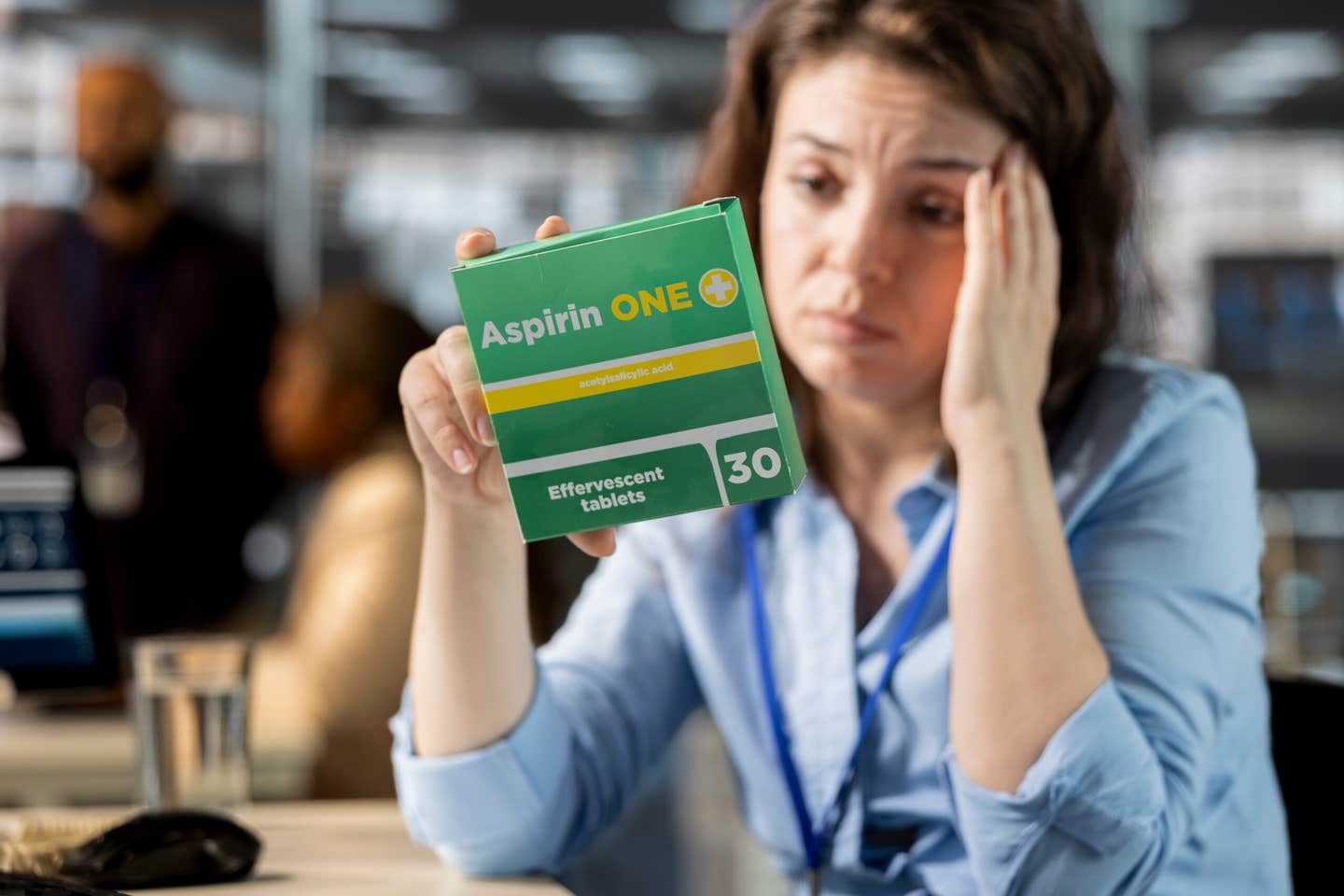Low-dose aspirin can reduce risk for heart attacks and strokes in adults with Type 2 diabetes
Low-dose aspirin may lower the risk of heart attack, stroke, and death in adults with Type 2 diabetes.

 Edited By: Joseph Shavit
Edited By: Joseph Shavit

Low-dose aspirin may lower the risk of heart attack, stroke, and death in adults with Type 2 diabetes. (CREDIT: Shutterstock)
For millions of individuals managing Type 2 diabetes, every visit to the doctor carries the same concern; What do I do to prevent the next heart attack or stroke? A new study presented at the American Heart Association's Scientific Sessions 2025 indicates that a simple, familiar pill may offer some added protection.
The researchers examined individuals with Type 2 diabetes and moderate to high cardiovascular risk who took low-dose aspirin and found they had lower rates of heart attack, stroke, and death compared to those who did not routinely take aspirin.
"We know that in recent studies by other groups, aspirin has not shown benefit for primary prevention in people without established cardiovascular disease," said Dr. Aleesha Kainat, MD, a clinical assistant professor of medicine at the University of Pittsburgh Medical Center and lead author of the study. "But, Type 2 diabetes is a known risk factor for cardiovascular disease, so we wanted to further investigate the role of aspirin in this very specific population."
Tracking an Entire Decade of Client Data
The study team assessed a decade of medical records from more than 11,500 adults diagnosed with Type 2 diabetes and moderate or high cardiovascular risk scores. Using data from the University of Pittsburgh Medical Center system of 35 hospitals and 400 clinics, the researchers could evaluate how well individuals utilized the low-dose aspirin and vary their outcomes based on use.
Participants were assigned based on how often aspirin appeared in their records, from never to more than 70% of the time, and followed for about eight years. Clinical researchers also assessed blood sugar control through HbA1c levels to clarify whether glucose control had an impact on aspirin's benefits.
Their results were impressive. In those participants taking low-dose aspirin, heart attacks occurred in 42.4% of participants taking aspirin and 61.2% in non-aspirin users. Risk of stroke was reduced from 24.8% with non-aspirin users down to 14.5% with aspirin users. Risk of death from all causes was reduced from 50.7% down to 33.0% in taking aspirin users.
"We were somewhat surprised by the degree of the findings," Kainat said. "The benefit was greatest among users who took aspirin consistently throughout most of the follow-up time."
Consistency Matters
Any use of low-dose aspirin was linked to a reduced risk of cardiovascular events, but the most consistent users saw the largest advantage. The benefit was consistent across populations; however, it was also stronger in people with a more desirable HbA1c suggesting improved diabetes management.
Aspirin, long known for its blood-thinning effects, is already commonly used in preventing repeat heart attacks or strokes. But its use in people without previous events, what doctors call “primary prevention”, has been controversial because of the drug’s potential to cause bleeding. Kainat cautioned that her study did not include individuals with a high risk of bleeding and did not monitor for side effects - a serious limitation that makes application in the real-world more complicated.
Assessing Benefits and Risks
"I think this study provides some interesting information about reducing the rates of major cardiovascular events in people with Type 2 diabetes," said Dr. Amit Khera, a professor of medicine and director of preventive cardiology at UT Southwestern Medical Center, who was not involved in the research. "Right now, the American Heart Association does not recommend low-dose aspirin for primary prevention in these adults, but this study creates some interesting questions for future research and validation."
Khera emphasized the importance of making aspirin decisions with your doctor. "The bottom line and important message is to engage your health care team directly to evaluate your individual risks, and decide together if the benefits outweigh potential risks," he said.
Not a Simple Solution
The researchers pointed out that theirs was an observational study. This means that the researchers used past medical records and did not enroll participants into a randomized controlled trial. For that reason, this study cannot say that aspirin prevented heart attacks or strokes in the participants. There may have been other issues - such as unreported use of over-the-counter medications or differences in lifestyle - that may have affected risk factor outcomes.
Even so, the data suggest, and this study builds on, the notion that aspirin may be beneficial for select high-risk groups. The findings also open further inquiry into the use of aspirin in conjunction with newer diabetes and heart medications including GLP-1 medications and other cholesterol-lowering therapies in addition to statins.
"We will need to investigate how we consider the cardiovascular benefits of low-dose aspirin against the known bleeding risks for individual high-risk patients," Kainat said. "It is also an open area of inquiry to consider whether potential benefit of aspirin patients, potentially in parallel to emerging therapies."
Research findings are available online at the American Heart Association.
Related Stories
- Aspirin can prevent some cancers from spreading, study finds
- Heart attack deaths in the US drop 90% as new heart risks rise
- Blood platelet test could save millions of Americans from heart attacks and strokes
Like these kind of feel good stories? Get The Brighter Side of News' newsletter.
Mac Oliveau
Writer
Mac Oliveau is a Los Angeles–based science and technology journalist for The Brighter Side of News, an online publication focused on uplifting, transformative stories from around the globe. Passionate about spotlighting groundbreaking discoveries and innovations, Mac covers a broad spectrum of topics including medical breakthroughs, health and green tech. With a talent for making complex science clear and compelling, they connect readers to the advancements shaping a brighter, more hopeful future.



